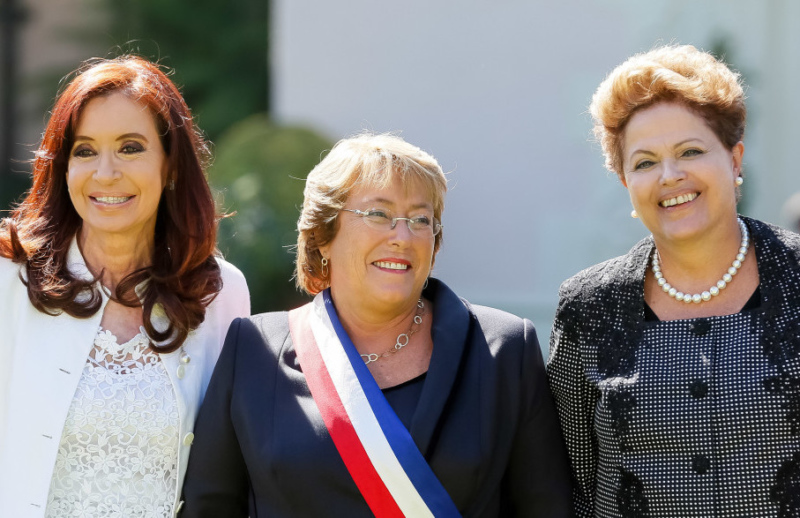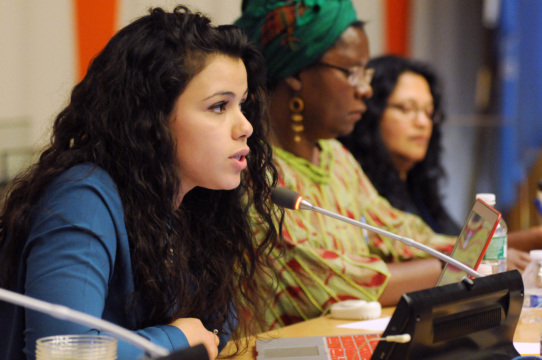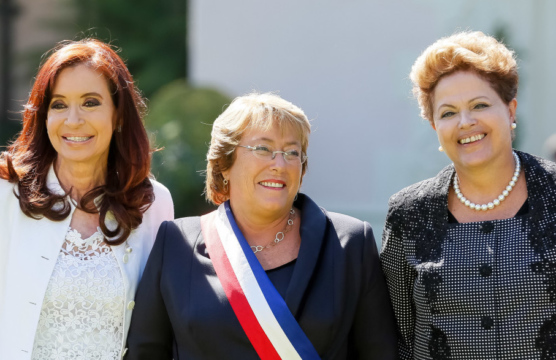What Roles are Women Playing in Mexico’s Drug War?
What roles are women playing in Mexico’s brutal drug trafficking war?
Women have made significant gains in Latin American government and politics, but structural barriers continue to impede their full and equal participation. On June 9th, the Inter-American Dialogue and American University’s Washington College of Law co-hosted members of the Argentine Congress, City of Buenos Aires Legislature, and the NGO FairVote to discuss the challenges facing women who seek and hold political office in the Americas.
The Inter-Parliamentary Union ranked Argentina 21st in the world for the percentage of women in the national legislature. A 1991 quota law dictates that women comprise at least 30 percent of candidates for national elected positions, yet the 2011 report Detrás del Número showed how the Argentine law is not necessarily a panacea that guarantees women’s equal participation in national politics.
Congresswoman Gladys González pointed out that it is difficult to find women political activists to fill the party lists in accordance with the quota law. She believes the “women’s agenda is society’s agenda, and society’s agenda is the women’s agenda,” but conceded that not every woman legislator approaches issues from a gender perspective. Congresswoman Carla Carrizo agreed, saying that “just because a woman gets a legislative position does not mean that she is necessarily a leader on women’s issues.”
Congresswoman Brawer placed women’s political gains in a historical context, noting that Argentina marked 30 years of recovered democracy in 2013. Although she characterizes laws to address femicide and violence against women as positive achievements, Brawer lamented that it is much easier to pass a law than it is to implement one. In addition, she emphasized how the media can affect women’s political participation; President Cristina Fernández de Kirchner, she mentioned, is often the victim of gender-based attacks in the press.
In her assessment of potential methods to increase American women’s political involvement, Cynthia Terrell of FairVote focused on the detrimental effects of the US winner-take-all electoral system. She noted that proportional or ranked-choice voting proves much more effective at increasing women’s political participation. To demonstrate how such electoral systems can influence outcomes, Terrell discussed the 2013 Minneapolis mayoral election, which Betsy Hodges – outspent and facing over 30 competitors – won thanks to the city’s ranked choice system.
Women in public office are still fighting so that others can run for and serve in elected office while balancing family life, serve in leadership and on non-traditional committee assignments, and hold positions at all levels of government. Nonetheless, women have made great strides in the political realm thus far, changing debates and offering fresh perspectives on important issues. As Buenos Aires legislator Maria Rosa Muiños asserted, “women are putting issues on the agenda that would not be there if women weren’t in those [legislative] positions.”
What roles are women playing in Mexico’s brutal drug trafficking war?
How are women faring in Latin America? Where has progress been made and how has that been achieved?
Would this be a more compassionate, more peaceful planet if more of it were ruled by women?
 Roberto Stuckert Filho / PR / CC BY-NC-SA 2.0
Roberto Stuckert Filho / PR / CC BY-NC-SA 2.0

